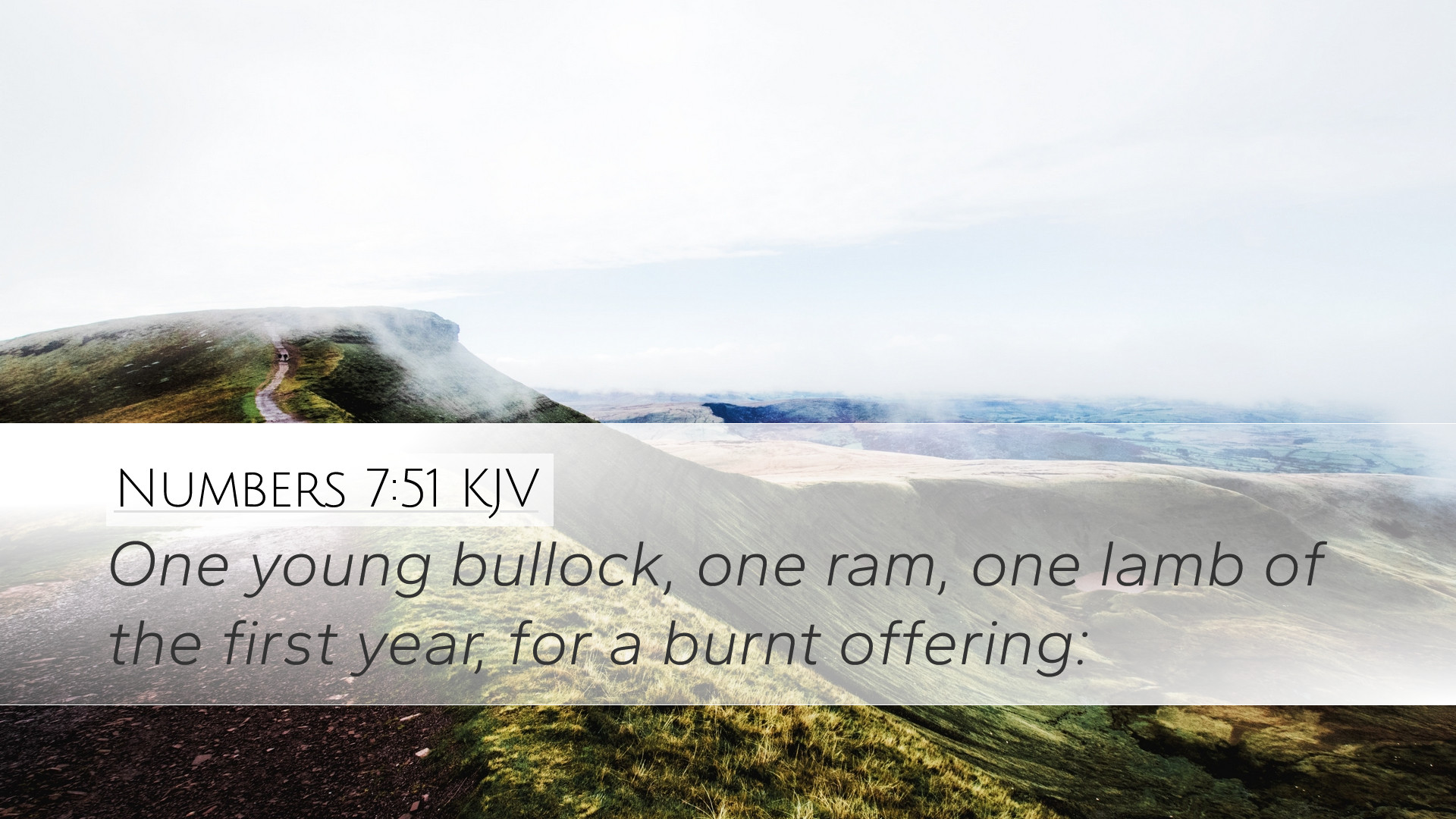Commentary on Numbers 7:51
The verse in Numbers 7:51 states:
"And the two wagons and four oxen he gave unto the sons of Gershon, according to their service."
Contextual Overview
This verse is part of a larger narrative where the Israelites, under the leadership of Moses, are preparing for their journey through the wilderness. Each tribe is assigned specific responsibilities related to the tabernacle and its furnishings. Here, the Gershonites, one of the families within the tribe of Levi, are provided with resources for their role in transporting the tabernacle's materials.
Commentary Insights
Understanding the Significance of the Gershonites
Matthew Henry notes that the Gershonites were tasked with carrying the fabrics of the tabernacle—specifically the tent and coverings—which held significant value both literally and symbolically.
-
Spiritual Symbolism: The act of transporting the tabernacle represents the commitment of God's people to preserving the sanctity of worship and the presence of God among them.
The Provision of Resources
Albert Barnes emphasizes the practical aspects of God's provision to His people. In Numbers 7:51, we see God's logistical foresight in equipping the Gershonites with the necessary means—two wagons and four oxen—to perform their duties effectively.
This reflects a principle in divine administration; God equips those He calls:
-
Divine Provision: Regardless of the task at hand, God's resources are sufficient for those whom He assigns work. The oxen symbolize strength and the wagons symbolize mobility, allowing the Gershonites to fulfill their role without hindrance.
The Importance of Division of Labor
Adam Clarke especially highlights the division of labor within the community of Israel. Each family and tribe had unique roles, which prevented chaos and ensured effective ministry and service to God:
-
Unity in Diversity: The verse demonstrates a model for church structure, where diverse gifts and roles contribute to one purpose: the glorification of God.
-
God’s Order: The careful organization of the Israelites serves to reflect God's order in creation and His intent for His people to function together in harmony.
The Role of Sacrificial Service
The distribution of the wagons and oxen symbolically underscores the idea of sacrificial service. Each individual within the community was expected to contribute their resources, time, and efforts to the greater mission of worship:
-
Selflessness: The Gershonites were called to a task that, while physically demanding, was ultimately for the glory of God and the benefit of the entire camp of Israel.
-
Collective Responsibility: Every member's contributions are vital; thus, the work of the ministry should be viewed as a collective effort under God's overarching design.
Theological Reflections
Through this verse, several theological themes emerge that are meaningful to pastors and theologians:
-
The Sovereignty of God: God's strategic organization of the Israelites reflects His supreme authority and His intimate involvement in the details of their lives.
-
The Nature of Worship: Worship involves not only personal expression but also corporate responsibility, indicating how one's service is a witness to others and an act of reverence to God.
-
Responsibility and Accountability: Each tribe is held accountable for their specific roles, echoing the New Testament teachings of stewardship and service within the body of Christ.
Takeaway for Pastoral Ministry
As ministers draw lessons from Numbers 7:51, they should consider the application of these principles within their congregations. Key points include:
-
Encouragement of Participation: Encourage church members to discover and engage in their God-given roles, just as the Gershonites were equipped for theirs.
-
Value of Community: Foster a culture of mutual support and cooperation, recognizing that individual contributions enhance the collective worship experience.
-
Preparation for Service: Ensure that both physical and spiritual resources are made available to church members for their ministry tasks.
Conclusion
Numbers 7:51 not only outlines the logistical arrangements made for the transport of the tabernacle’s materials but also serves as a poignant reminder of God’s provision, the importance of community in service, and the holiness surrounding the worship of God. As we reflect on this verse, may we be inspired to see our roles within the body of Christ and embrace our call to sacrificial service in His name.


